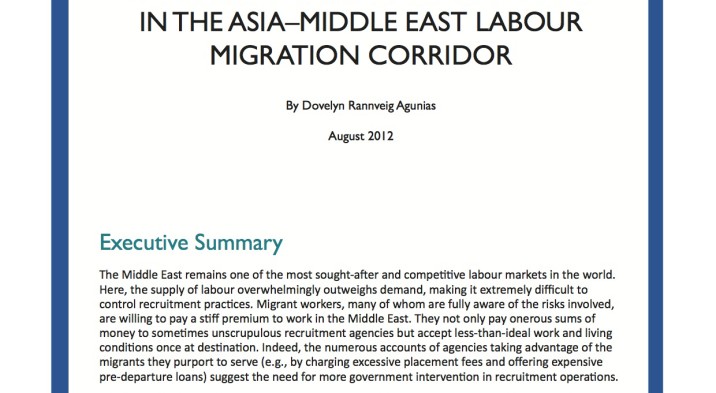
Dovelyn Rannveig Agunias, August 2012
The Middle East remains one of the most sought-after and competitive labour markets in the world. Here, the supply of labour overwhelmingly outweighs demand, making it extremely difficult to control recruitment practices. Migrant workers, many of whom are fully aware of the risks involved, are willing to pay a stiff premium to work in the Middle East. They not only pay onerous sums of money to sometimes unscrupulous recruitment agencies but accept less-than-ideal work and living conditions once at destination. Indeed, the numerous accounts of agencies taking advantage of the migrants they purport to serve (e.g., by charging excessive placement fees and offering expensive pre-departure loans) suggest the need for more government intervention in recruitment operations.
Available policy levers for regulating recruitment practices are many and should aim to achieve the following overarching goals: (1) reduce the number of recruitment agencies to an optimal level to prevent cut-throat competition among them, (2) bring subagents and brokers into the formal sector, (3) regulate transactions among recruiters and between recruiters and employers and (4) harmonize regulations governing recruitment agencies at origin and destination.
Ultimately, however, recruitment practices do not exist in a vacuum. Governments at both origin and destination should also introduce parallel measures (such as provision of equal treatment and basic rights) that empower labour migrants and give them the needed negotiating leverage in an otherwise unequal employment relationship.